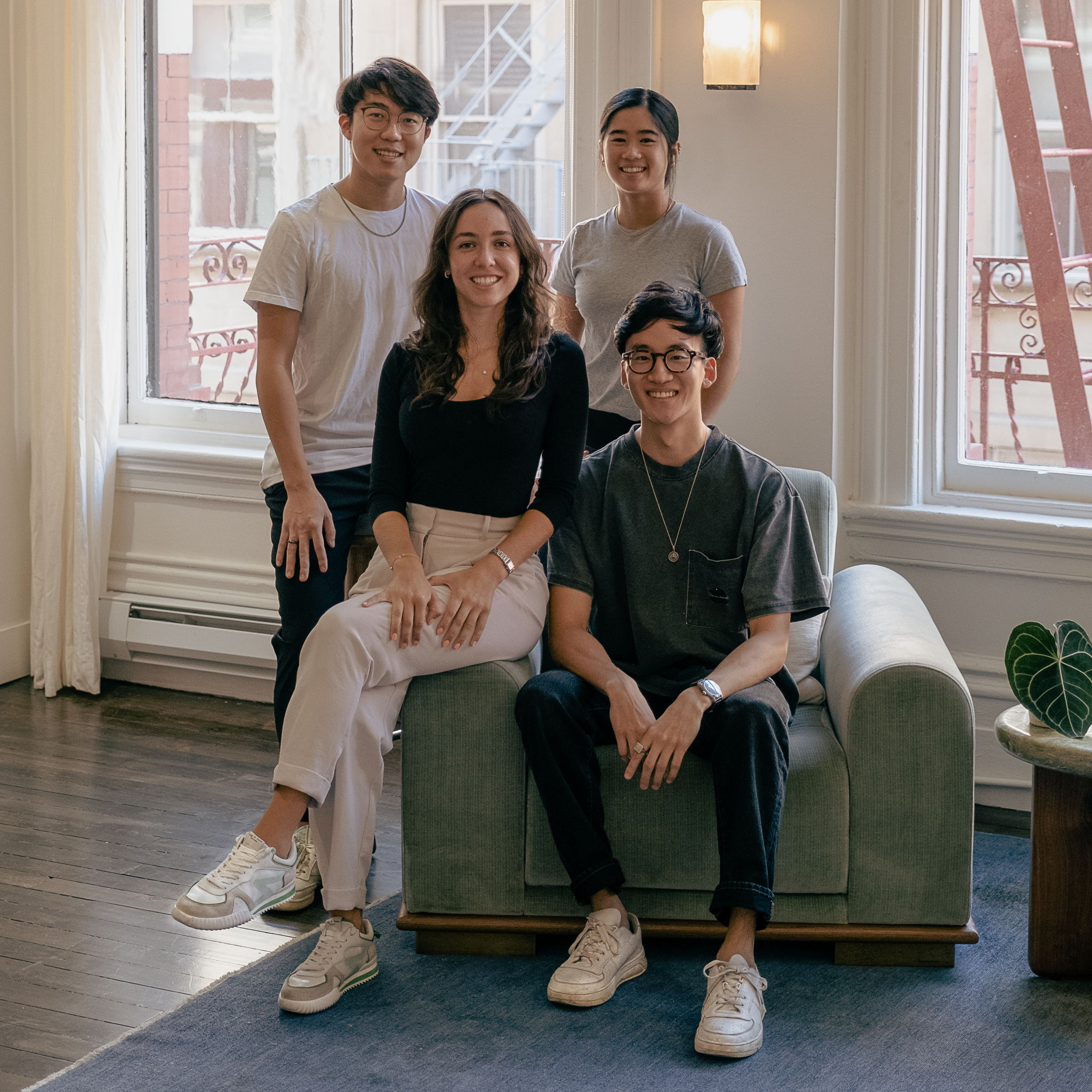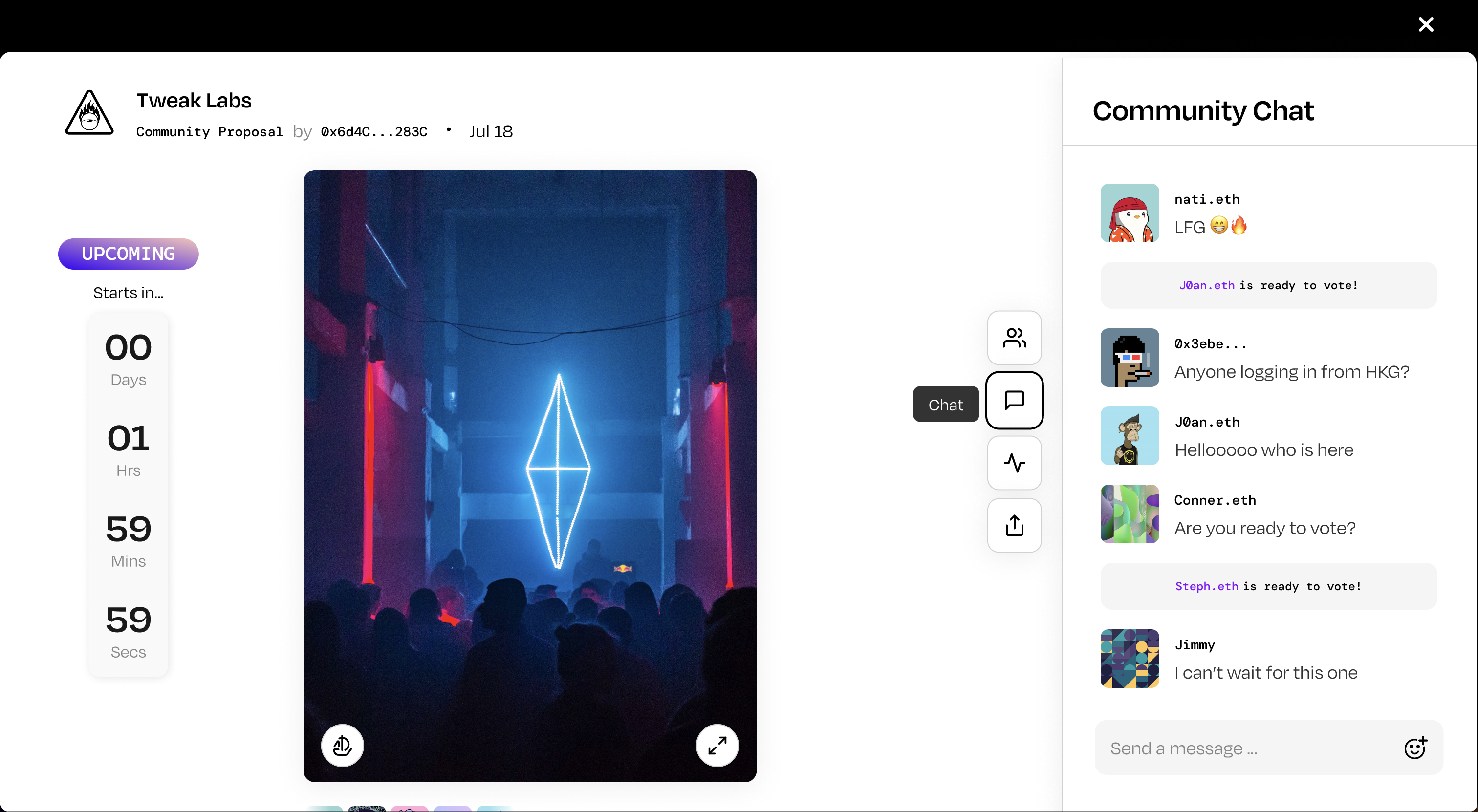Natalia Murillo was an undergraduate at the University of Southern California when a professor taught her about the cryptographic technique of zero-knowledge proofs. She’s been immersed in web3 and blockchain tech ever since, dropping out of college and investing the ~$5,000 she had to her name in NFTs before starting a web3 company, Koop.
After two months in private beta, Koop, which 21-year-old CEO Murillo co-founded with CTO Conner Chyung, just launched to the public. At its core, Koop is a protocol that helps creators and communities launch NFT-based membership passes to raise funds for projects, Murillo told TechCrunch in an interview.
Koops, as they’re called, are owned by their members, who vote on how to spend the group’s treasury funds, Murillo said. Koops can be formed for anything from launching a venture fund to creating a new clothing brand, though its use cases seem to be mainly geared toward content creators looking to build communities of engaged fans.
The platform has seen $850 million in volume already from the treasuries of its 50 active communities buying and selling NFTs, according to Murillo, who noted that the company has a waitlist of 8,500 groups who want to form Koops. The company says sign-ups on its platform are growing 4x week-over-week. Current Koop users include include Mems NFT, The Heart Project, 1confirmation, musicians with creatorDAOs, and gaming guilds, it says.

The Koop founding team: Daniel Ho, Natalia Murillo, Ivy Tsang, and Conner Chyung Image Credits: Koop
Koop also announced today that is coming out of stealth with $5 million in funding led by 1confirmation and web3 creator economy-focused Variant Fund, with participation from Palm Tree Crew, Day One Ventures, Ethereal Ventures, DeFi Alliance, Volt Capital, PearVC, DCF God, 0xmons and angel investors including crypto influencer Cooper Turley, ex-Coinbase CTO and a16z investor Balaji Srinivasan and former Sequoia partner Liu Jiang.
Murillo describes a Koop as a “socioeconomic network,” contrasting it with traditional social networks. It’s similar in some ways to a decentralized autonomous organization (DAO), a blockchain-based community governance structure that surged in popularity during last year’s crypto bull run. But Koops have some key differences from DAOs, Murillo said.
“The Koop is lighter-touch, it’s lighter-weight, and it’s focused more on the social experiences and less so on the nuances of, is every single member voting, or is it truly decentralized,” Murillo said. Creators using Koops, for example, can still choose to have single-handed control over their groups’ wallet and executing decisions, but might leverage the Koop community as a “temperature check” of sorts to help guide their decision-making.
DAOs also don’t have to be decentralized, but the ethos around them tends to be more focused on delegating voting rights equitably to each group member. Koops, in contrast, can be more centralized, tend to be smaller in size, and afford groups the option to organize around a short-term goal or cause and dissolve the Koop when it has been achieved, Murillo added.
“We participate in fictional worlds or digital communities with more fervence and passion than our local democracies, and so I felt like there was a big disconnect in terms of what communities were offering to the amount of time and investment I shared with them,” Murillo said of her motivations behind starting the company.
She shared the example of Youtuber and creator Logan Paul to explain the utility of a Koop. Murillo said she has been a subscriber to Paul’s “Impaulsive” podcasts for years, but she hadn’t felt engaged with the community around the product — “all I do is subscribe. I’m essentially paying taxes to comment and buy a piece of merch,” Murillo said.

A screenshot of Koop’s community chat feature Image Credits: Koop
Paul’s Koop, 99 Originals, affords community members rights they wouldn’t otherwise have as consumers of his content, she added.















 English (US) ·
English (US) ·